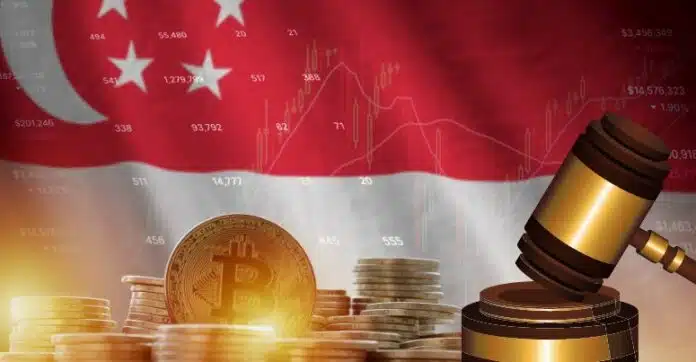
Cryptocurrency Regulations in Singapore
Though cryptocurrencies are treated as one of the safest investments that can provide high returns, the government of Singapore has infused certain regulations into transactions for the crypto exchange in Singapore. Regardless of how much money Crypto makes, the government believes it is still classified as a capital markets product or a digital payment token, depending on how it is used. Since crypto is treated differently from the actual Singapore currency, the government believes it is important to have certain regulations for crypto, especially if it involves a lot of money.
Types of Cryptocurrency Regulations
As per the laws of a cryptocurrency exchange Singapore, the currencies are regulated under either “PSA” or “SFA.” The PSA is an option for people who run a payment service business; there are seven types of payment services available for such businesses:
- Account issuance
- E-money issuance
- Money changing
- DPT
- Domestic Money Transfer
- Cross Border Money Transfer
- Merchant Acquisition
Ownership and Licensing Requirements
Whether the cryptocurrency is a capital markets product or a collective investment scheme, ownership can be classified as PSAs or SFAs. If any of the features of the cryptocurrency make it a capital markets product, i.e., making or proposing to make any arrangement with any person or encouraging or trying to influence any person to enter into or propose to engage in any agreement for or with the purpose of purchasing, disposing of, entering into, executing, arranging, subscribing to, or underwriting any agreement, then they would be stated as Capital Markets Product.
If a cryptocurrency is formed as part of the property of any collective investment scheme, the person in charge of managing the property or operating the scheme will be responsible for regulating fund management activity. If a person manages a portfolio on behalf of a customer that includes any type of crypto with capital markets products, that person is responsible for regulating the fund management of that account. In this case, the license must be purchased in accordance with SFA regulations.
If any cryptos, including those of capital markets products, fall under the Financial Advisers Act 2001 and someone is providing financial advice about them, a financial advisor license must be obtained.
Border Restrictions
There are no border restrictions on any of these laws or transmissions of cryptocurrencies for now in Singapore.
Money Transmission Laws and Anti-Money Laundering Requirements
For crypto exchanges in Singapore, there are some money transmission laws aimed at preventing the laundering of cryptocurrencies. Cryptocurrencies that are transmitted for some illegal activities like drug trafficking, corruption, crimes like kidnapping, etc., can be stopped with these money transmission laws since the person who sends the cryptos and those who receive the cryptos will have to provide detailed information on the transaction. Usually, if the transaction is high, it would naturally get the attention of the Singapore government.
These laws can help people file a complaint, depending on the type of money laundering that is taking place in Singapore. The following are the two acts under which the person can apply for:
- CDSA (Confiscation of Benefits, Act 1992)
- TFSA (Suppression of Financing, Act 2002)
CDSA: This act usually covers illegal transactions like drug trafficking, corruption, and some other crimes. People who undergo or witness such a transaction happening in Singapore can report or apply under the CDSA (Confiscation of Benefits Act 1992).
TFSA: This act differs from CDSA since it comes under the act of terrorism, and transactions that happen under terrorism are covered under this one. According to the law, anyone who possesses a terrorist’s crypto account or receives a transaction from a terrorist must notify the police and provide evidence of the transaction.
License for Money Transmission Businesses or Financial Advisors
A license will be provided for financial institutions, individual financial advisors, and other crypto-related investing businesses. To obtain the license, the business or individual must have a clear list of their customers or clients, including the type of business owned by the customer or client, the legal status of the crypto account owned by them, and an overall idea of the customer’s transaction processes.
A license can be obtained under either SFA or PSA regulations. The individual must carry the main documents needed for processing the license when applying for a license. These documents include ID proof, legal forms, the customer’s constitution and powers, and other relevant data about crypto transactions.
Conclusion
Though these rules may appear strange at first, and it may take some time for people to adjust to them, they were enacted by the Singapore government to make crypto trading in Singapore simple and hassle-free. Since cryptos will be treated as capital market products, the holder of the crypto account should always create a will with the name of the crypto account because if they did not, no one would know about the crypto account held by them.


